Wizards of the Coast expanded upon The Ring mechanic at MagicCon Minneapolis, explaining how it works within The Lord of the Rings: Tales of Middle-earth Magic: The Gathering set.
Legal to play in the MTG Modern format, like other Universe Beyond products, The Lord of the Rings: Tales of Middle-earth (LTR) set will contain a total of 281 regular cards. The set will also have a digital launch through MTG Arena, legal to play in the Alchemy and Historic formats. And of course, all Modern legal sets are playable within the Commander format. One of the main mechanics within the LTR set is The Ring, tempting players in a good way without any major downsides to playing it.
Related: All MTG Lord of the Rings release dates, pre-order product prices, and more
How MTG The Ring works during gameplay

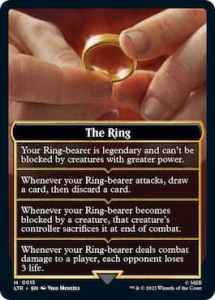

Getting tempted by the MTG Ring is a mechanic within the Lord of the Rings set, found on cards like Call of the Ring, An Enchantment that tempts its controller at the beginning of their upkeep. The triggered ability is “The Ring tempts you,” and can get activated through an ability or spell.
The Ring itself is an emblem, not to get confused with The One Ring, which is a legendary Artifact within the LTR set. Players will find four abilities on The Ring emblem. Upon first getting tempted, The Ring emblem is activated and its controller applies the first ability listed to a chosen ring-bearer.
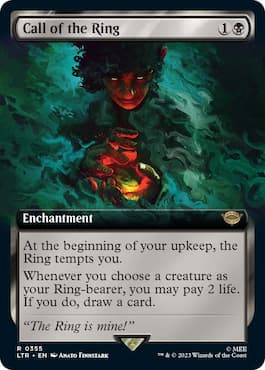
Every time the controller of The Ring is tempted, that player will choose a creature they control to become the ring-bearer. The player themselves is tempted if no creatures are controlled. And the ring-bearer remains so until that creature is removed from the battlefield or another ring-bearer is chosen upon another “The Ring tempts you” trigger.
Each time a new ability is activated, the previous abilities remain active, stacking upon one another. After the controller of The Ring has been tempted four times, The Ring emblem is at full power. Each player can have The Ring emblem active during a match.
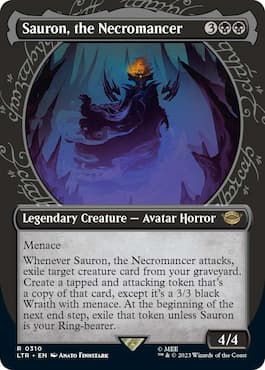
There are creatures within the MTG Lord of the Rings set that synergize with being the ring-bearer. Sauron, the Necromancer, for example, doesn’t have to sacrifice the copy token created at the beginning of the next end step when the legendary Avatar horror is the ring bearer.
Other LTR cards like Frodo, Sauron’s Bane can straight up win a match for a player who has an active The Ring emblem on the battlefield and has been tempted four or more times. And cards like Samwise the Stouthearted can trigger “The Ring tempts you.”
Why ‘The Ring tempts you’ doesn’t have a downside to it
From a flavor perspective, it makes sense for The Ring emblem to empower creatures and characters within the LTR set as the ring-bearer, and that some will benefit from it more than others. But getting tempted by The Ring should have negative downsides from a flavor perspective, and this isn’t the case within The Lord of the Rings Tales of Middle-earth MTG set.
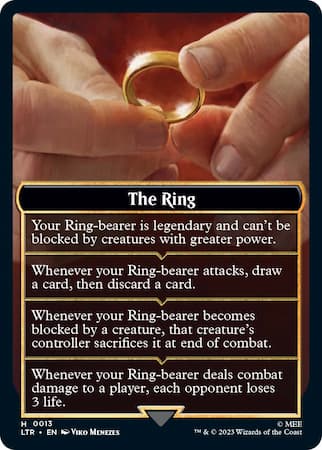
The question was presented to game designer Mark Rosewater by a Tumbler user, and unsurprisingly, the MTG team didn’t want one of the main mechanics in the set to have “feels bad” moments.
“We tried granting downside effects,” Rosewater said. “It wasn’t fun and it made players not play the mechanic. We did find having the ring makes the ring-bearer more of a target for your opponent to kill, and that did feel like a downside while not stopping people from playing the mechanic.
Rosewater is likely referring to playtesting of the LTR set, but he may also be eluding to the AFR set which included a dungeon called Tomb of Annihilation that had a downside option in conjunction with powerful upside options. It’s unknown how this dungeon was received across all MTG formats but it was one of the least chosen paths while the set was legal to play in the Standard format.
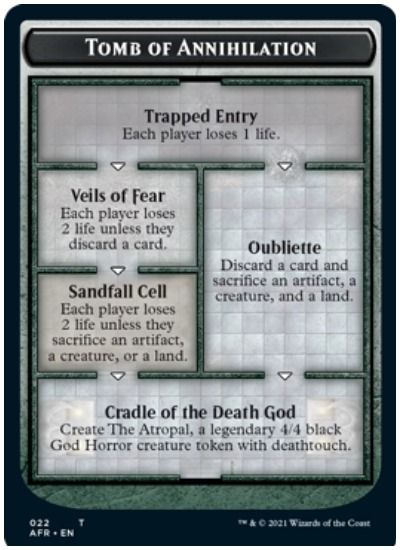
Powerful creatures are typically the target of removal and counterspells, which technically is a downside. But The Ring emblem itself is only upside and value, especially when the ring bearer can take advantage of the emblem’s abilities to their fullest extent.
Players can test out The Ring emblem when The Lord of the Rings: Tales of Middle-earth digitally releases on June 20 and has a global tabletop launch on June 23. All LTR spoilers are slated to start on May 30.


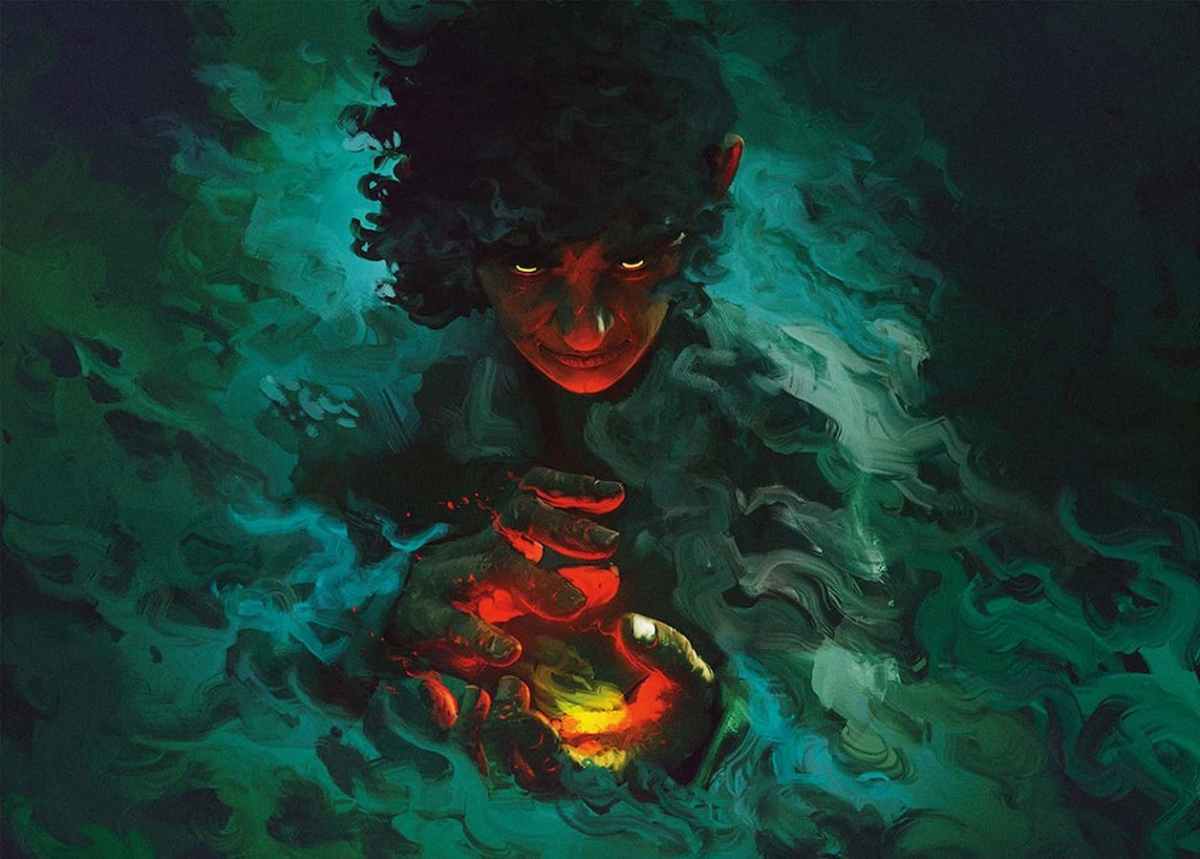
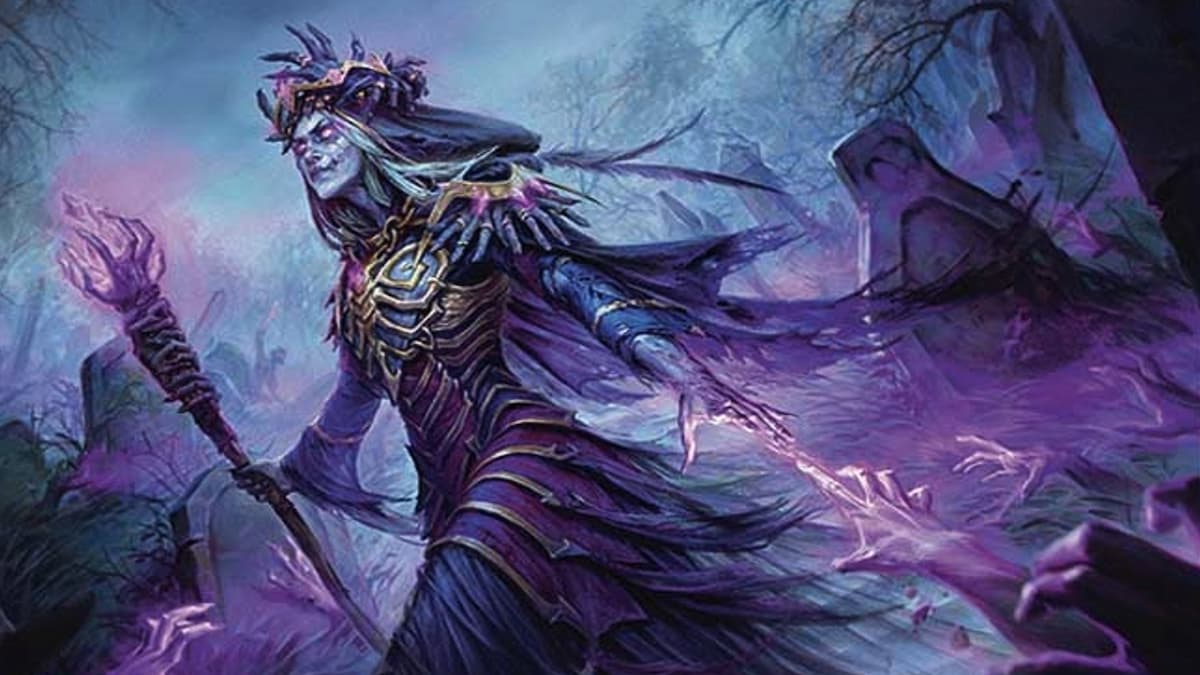
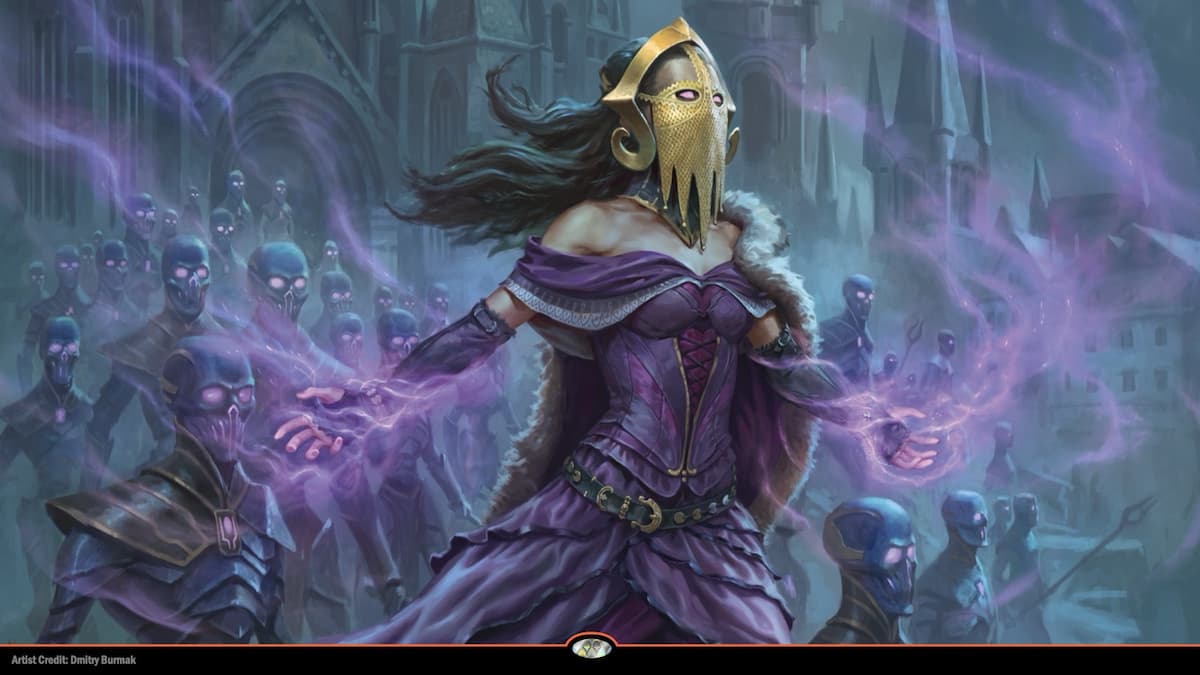
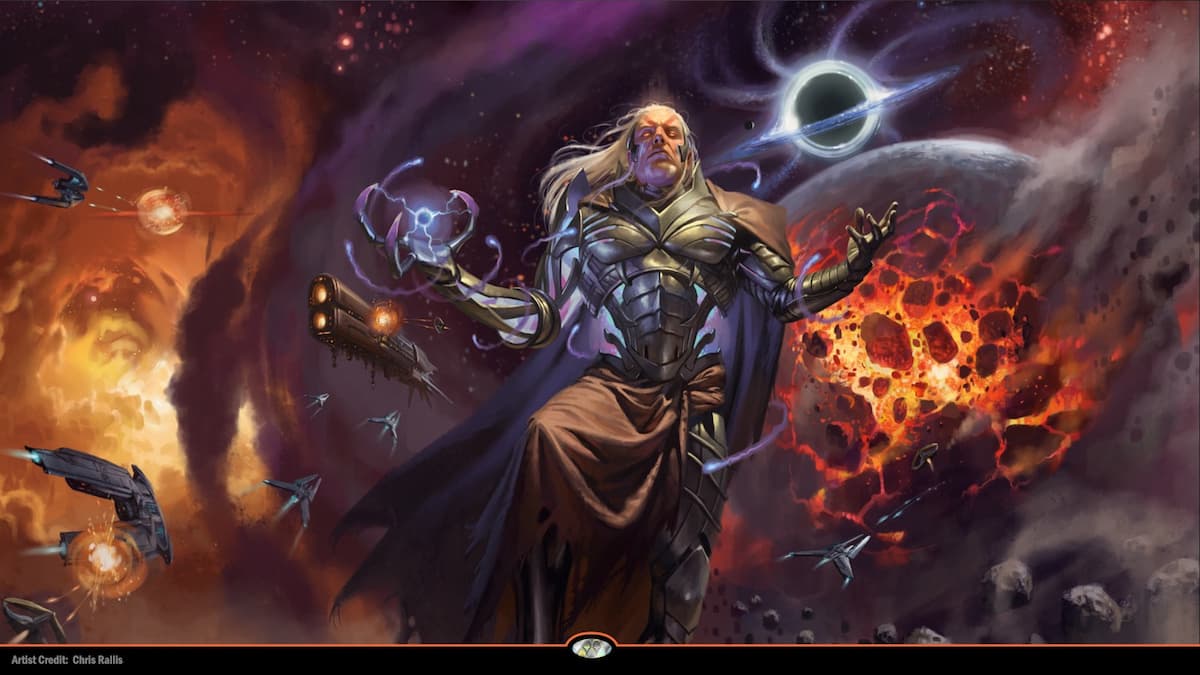

Published: May 8, 2023 02:05 pm